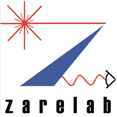Letter to New York Times: Scientists Speak Out about Guantanamo
To the Editor:
We are deeply concerned that without serious debate, the United States has crossed the limits of acceptable practices in the treatment of prisoners at Guantánamo Bay, Cuba, and other sites. The secrecy and the disdain for international law and opinion are contrary to the very ideals that our country has long stood and fought for.
We are told that our country is being protected by locking up dangerous terrorists in isolated facilities in order to make us accept a breakdown of our own laws. But we do not know – indeed, we have not been allowed any way of finding out – if the individual prisoners are enemy combatants, Al Qaeda suspects or innocents unlucky enough to have been caught in a blind sweep.
It is one of the most fundamental principles of a democracy that all accused should be tried without unreasonable delays and freed if innocent. In no case do our moral principles permit humiliating and degrading treatment.
The administration has cynically used fear to justify behavior that the civilized world has long considered criminal.
Although this is not a scientific issue in the usual sense, we feel that to ignore it would be to abdicate our responsibility to the truth. Therefore, we have felt compelled to speak out against human rights violations, including those committed by Americans. We are asking all people of good will to join us in demanding a quick return to our country’s great traditions.
Leonard Susskind
Professor of Physics, Stanford University
Palo Alto, Calif., April 19, 2006
Michael Aizenman
Professor of Mathematical Physics, Princeton University
James Bjorken
Emeritus Professor of Theoretical Physics, Stanford University
Stanley Deser
Professor of Physics, Brandeis University
Freeman Dyson
Professor of Physics, Institute for Advanced Study
Mary K. Galliard
Professor of Physics, University of California at Berkeley
David Gross
Professor of Physics, University of California
Winner of the 2004 Nobel Prize in Physics
Leo Kadanoff
Professor of Physics and Mathematics, University of Chicago
Walter Kohn
Professor of Chemistry, University of California at Santa Barbara
Winner of the 1998 Nobel Prize in Chemistry
Elliot Lieb
Professor of Mathematics and Physics, Princeton University
Joel Lebowitz
Professor of Mathematics and Physics, Rutgers University
Douglas Osheroff
Professor of Physics and Applied Physics, Stanford University
Winner of the 1996 Nobel Prize in Physics
Joseph Polchinski
Professor of Physics, University of California at Santa Barbara
Edwin Salpeter
Emeritus Professor of the Physical Sciences, Cornell University
John H. Schwarz
Professor of Theoretical Physics, California Institute of Technology
Frank Wilczek
Professor of Physics, M.I.T
Winner of the 2004 Nobel Prize in Physics
Edward Witten
Professor of Mathematical Physics, Institute for Advanced Study
Richard Zare
Professor in Natural Sciences, Stanford University
Bruno Zumino
Emeritus Professor of Particle Theory, University of California at Berkeley
All writers are members of the National Academy of Sciences.
